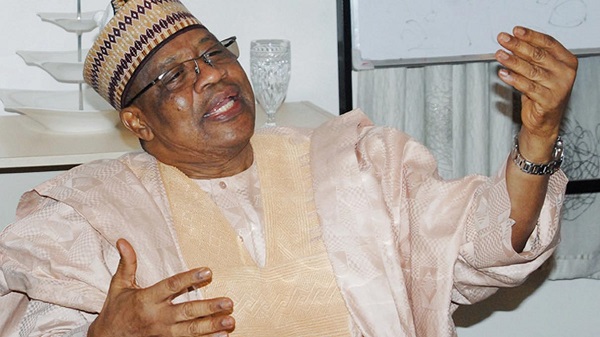Ibrahim Badamasi Babangida, former head of state, says it is silly to blame the military for Nigeria’s problems.
Six years after independence, some Nigerian soldiers led by Chukwuma Nzeogwu carried out a coup which failed. Johnson Aguiyi-Ironsi emerge as the first military head of state afterwards.
Subsequent coups resulted in a prolonged military rule. Babangida, who was one of the longest-serving military rulers, led Nigeria from 1985 to 1993.
“We didn’t create problems. We tried to provide the framework upon which subsequent governments could build upon. Most of the infrastructural developments, even the democracy, we midwifed it. We were able to capture what the world is doing now and bring them into our own country,” he said.
“I find it silly to say that we created the problems. It is a joint venture between the military and the civilians. You were there to show us how the system works; the institutions of governance and government, all these were civilians prerogative.”
“You have political parties that wanted to carve a region and call it their own. We didn’t develop this concept of a federal government with the states or the regions,” he said.
“Every region wanted to be on its own. So, that brought about the lack of stability and in the process, we (the military) got involved in a lot of internal security operations, up to the time it culminated in a military coup.
“Fortunately, the military who intervened at that time were all nationalistic. They did not believe in separation. All they had to do was to make sure the various regions remain one, not divided.”
“The moment you take over a government, the regional and international bodies will come after you. And everything you want to do in terms of development will not be accepted. You cannot work on your own,” he said.
The former head of state said Nigeria’s greatest achievement so far is “the fact that we were able to remain one as a country” especially after experiencing the civil war.
“We tend to talk too much about the problems and do not talk about the solutions to the problems,” he added.



